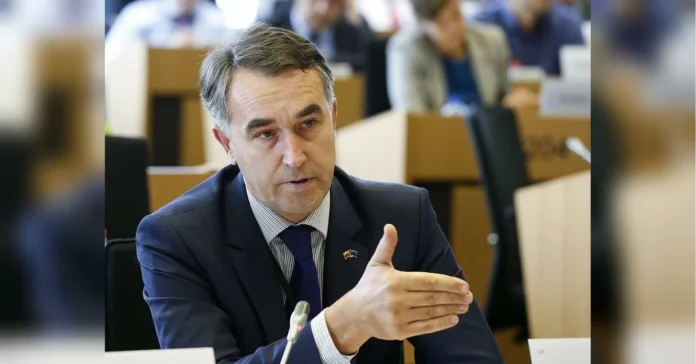According to Petras Austriavicius, a Lithuanian politician and former member of the European Parliament, there is a huge discrepancy between reality and promises made by politicians. This statement, made by Austriavicius during a recent interview, highlights a common issue in politics – the failure to deliver on promises made to the public.
In today’s world, where politicians are constantly making promises to gain votes and support, it is not uncommon for these promises to fall short once they are in power. This is a problem that has been seen in many countries, including Lithuania, where Austriavicius has been a prominent figure in politics for many years.
Austriavicius believes that this discrepancy between reality and promises is damaging to the trust between politicians and the public. When politicians make promises that they cannot keep, it creates a sense of disillusionment and disappointment among the people. This can lead to a lack of faith in the political system and a feeling of betrayal by those in power.
One of the main reasons for this discrepancy, according to Austriavicius, is the lack of accountability for politicians. In many cases, once they are elected, politicians are not held accountable for the promises they made during their campaign. This allows them to make grand promises without any consequences if they fail to deliver.
Furthermore, Austriavicius also points out that politicians often make promises without fully understanding the reality of the situation. They may promise to solve a certain issue or implement a certain policy without fully considering the complexities and challenges involved. This leads to unrealistic promises that cannot be fulfilled.
In addition, Austriavicius believes that the media also plays a role in this discrepancy. Politicians often make promises that are exaggerated or taken out of context by the media, leading to unrealistic expectations from the public. This creates a vicious cycle where politicians feel the need to make bigger and more unrealistic promises in order to gain media attention and public support.
So, what can be done to bridge this gap between reality and promises? Austriavicius suggests that politicians need to be held accountable for their promises. This can be achieved through stricter regulations and consequences for failing to deliver on promises. In addition, politicians need to be more transparent and realistic in their promises, taking into consideration the challenges and limitations of their positions.
Moreover, the media also has a responsibility to report accurately and objectively on the promises made by politicians. They should not sensationalize or exaggerate promises, but rather provide a balanced and realistic view of what can be achieved.
It is also important for the public to be more critical and informed when it comes to promises made by politicians. Instead of blindly believing in every promise, people should do their own research and hold politicians accountable for their actions.
In conclusion, the discrepancy between reality and promises made by politicians is a serious issue that needs to be addressed. It erodes trust in the political system and creates a sense of disappointment and disillusionment among the public. It is the responsibility of both politicians and the media to bridge this gap and ensure that promises made are realistic and achievable. Only then can we have a more transparent and accountable political system that truly serves the needs of the people.

